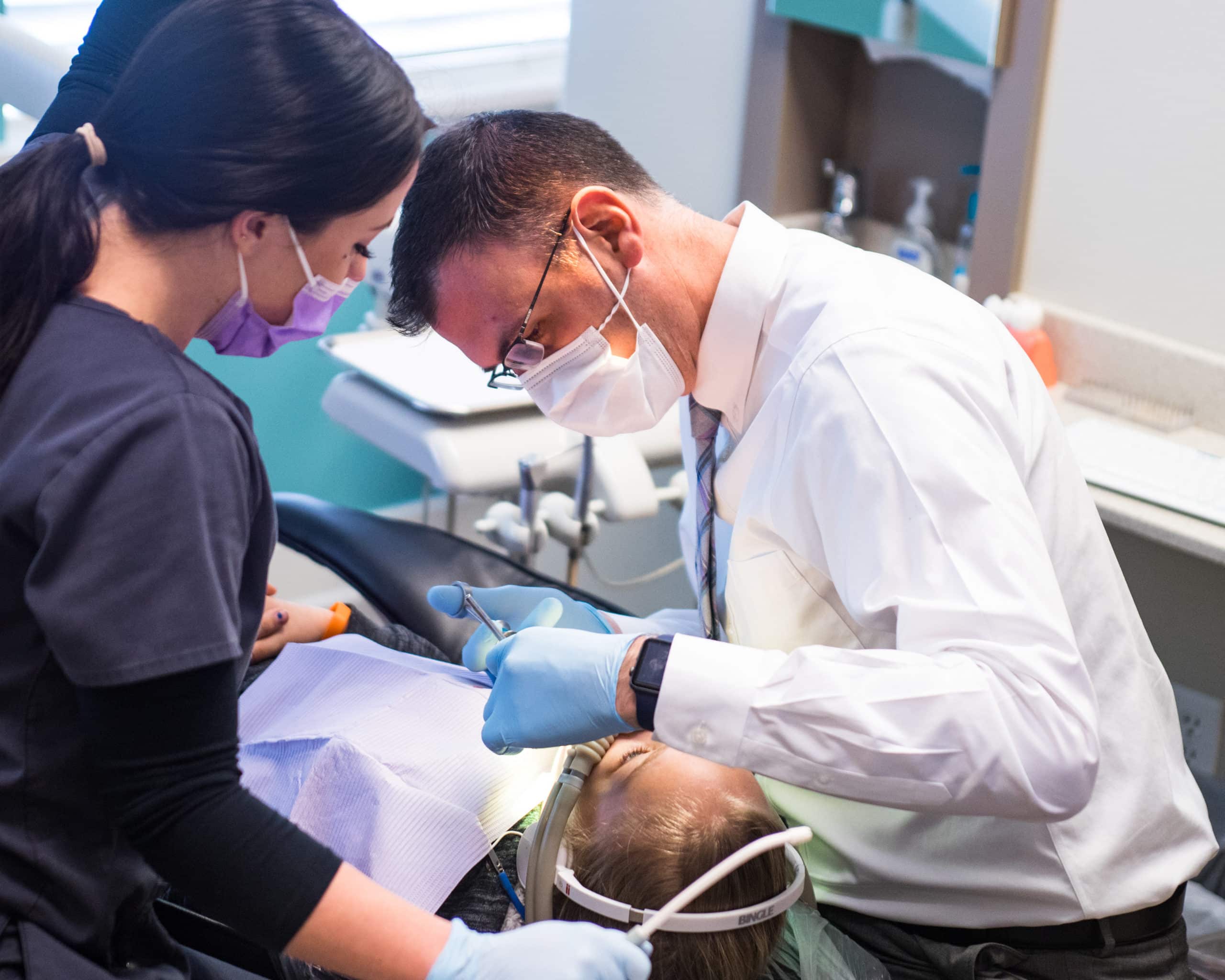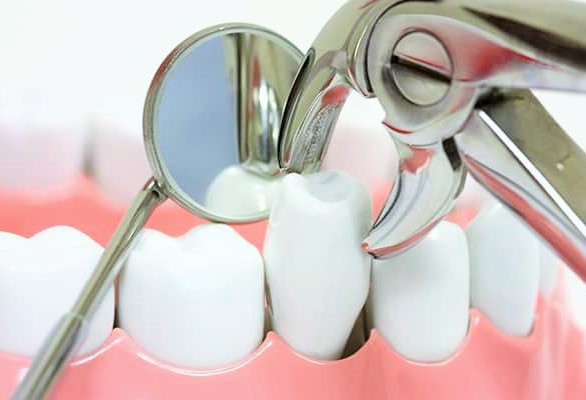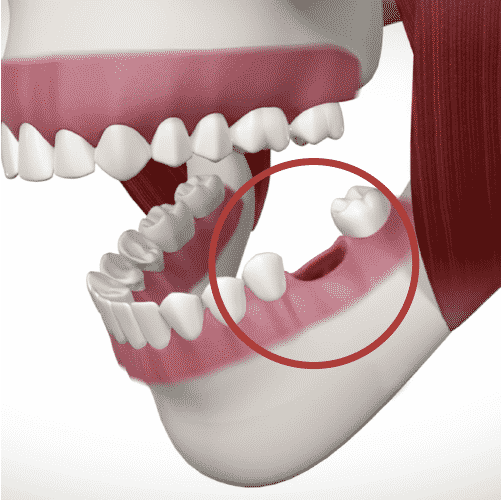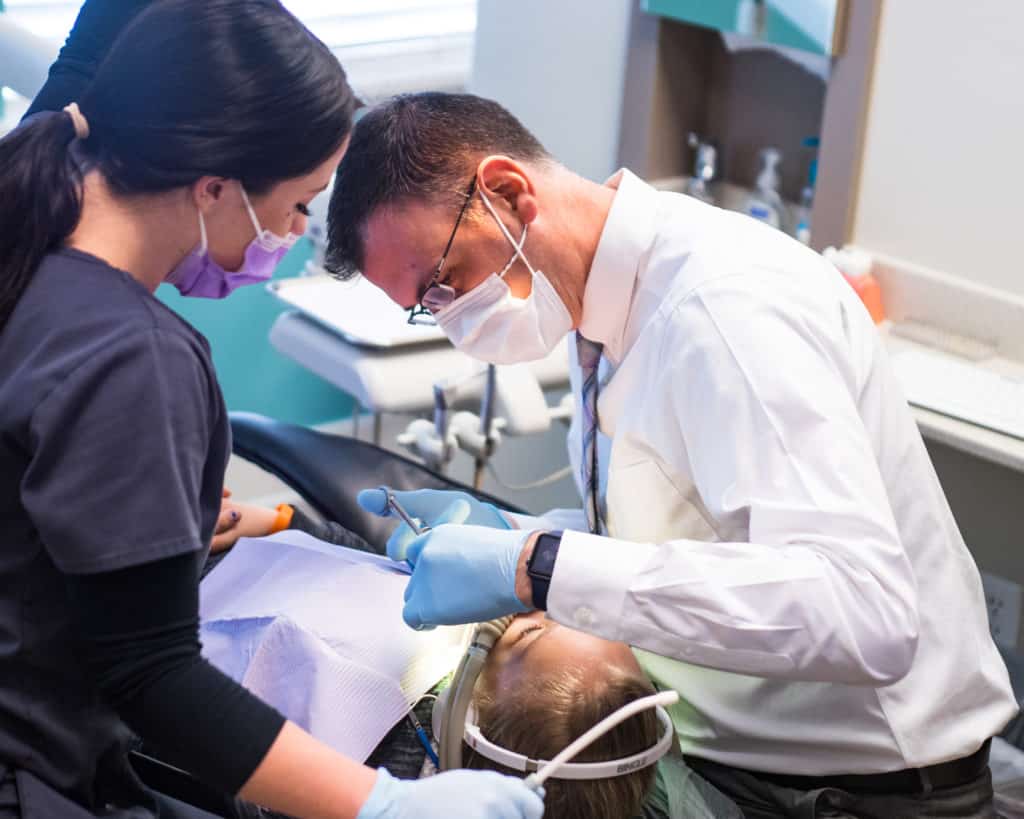7 Tips to Find the Best Dentist for Your Oral Health Needs
June 19, 2025

December 3, 2021
As much as we strive to care for our teeth, sometimes we can’t always keep them. In some cases, the best thing to do for our oral health is not to have a filling or a crown, but to have a tooth removed entirely. With modern medicine, extractions, regardless of if they are simple or surgical, are nothing to fear and will in fact benefit your oral health in the long run, if you need to have them done. Here’s what you need to know about simple vs surgical tooth extractions.

There are many reasons why people need to have teeth extracted. They range from how much space is in your mouth, to the underlying conditions, to the state of your tooth itself. Some of the most common reasons why people end up needing tooth extractions include:
If there isn’t enough space in your mouth for all of your teeth, your dentist can remove some to prepare for other treatments, like orthodontics.
In many cases, the dentist can take out decay and install a filling, but if that decay reaches the pulp of your tooth, you may end up needing an extraction to prevent it from spreading to other parts of your mouth.
Since wisdom teeth are the last set of molars to come in, they often don’t have enough space to come in fully. This leads to only part of the tooth getting above the gumline, while the rest stays under. These are often painful and can result in further dental issues, meaning that these need extractions.
These are but three of the many reasons why people need to get teeth extracted. With how many potential causes there are, it makes you wonder which kind of extraction is better for which kind of problem, simple vs surgical tooth extraction. Here’s what you need to know.

In general, there are two different types of tooth extractions: simple and surgical. The key difference with simple vs surgical tooth extractions lies in the nature of the tooth that needs to be extracted and the structures around it.
Simple extractions are not a surgical procedure. This kind of tooth extraction is typically done on a visible tooth, and you can go to your usual dentist for this kind of extraction. Simple extractions generally only need local anesthesia in order to numb the pain, though you can be sedated, if need be. Your dentist simply wiggles the tooth out of its socket with dental tools, and you are back to normal within days after the procedure.
As you may expect, surgical extractions are more involved than simple extractions. Generally, you won’t go to your typical dentist for this kind of extraction, but would rather be referred to a specialist. This is because surgical tooth extractions involve the structures under your gums, not just a visible tooth. An extraction turns surgical when your dentist would need to remove any gum or bone tissue in order to extract the tooth.
Since it is a more involved surgical procedure, you’ll need high levels of anesthesia or sedation. After the extraction, your dentist will stitch you back up and likely will end up prescribing you something for the pain while you heal.
Some examples of when you’d need surgical extractions are wisdom teeth, if your tooth is broken at the gumline, or the tooth has a long-curved root.

With how medicine has progressed, there’s no need to fear tooth extractions. With painkillers, professional training, and scientifically informed procedures and recovery recommendations, you’ll be back to normal soon after your procedure. It stands to reason that the recovery time between simple vs surgical tooth extractions varies, seeing as surgical extractions are much more involved.
After your extraction, you can expect gum bleeding, which can be controlled through biting on gauze until a blood clot forms. This blood clot will seal the socket where the tooth was and assist in healing. If you have a surgical extraction, you’ll have stitches to be mindful of. You’ll want to ensure that you rest your mouth, stick to soft foods and liquids, and follow your dentist’s recommendations about brushing and pain killers.
Mountain View Dental knows that sometimes the best thing to do for your oral health is to remove a tooth that cannot be saved or that is causing problems. We can perform simple extractions and refer you out to a specialist for any surgical extractions. For any questions about simple vs surgical tooth extractions or about any of our other dental services, please contact us at Mountain View Dental today!
2797 U.S. 89 #201
Pleasant View, UT 84414
| Monday | 8 AM - 5 PM |
|---|---|
| Tuesday | 8 AM - 7 PM |
| Wednesday | 8 AM - 7 PM |
| Thursday | 8 AM - 7 PM |
| Friday | 8 AM - 3 PM |
| Saturday | 8 AM - 12 PM |
| Sunday | Closed |
Proudly accepting new patients from: Pleasant View, North Ogden, Harrisville, Farr West, Marriott-Slaterville, Ogden, Plain City, South Willard, Willard and Perry!
© 2025 | Mountain View Dental | All Rights Reserved | Accessibility | Anti-Discrimination | Healthcare Disclaimer | HIPAA Privacy Policy | Privacy Policy | Terms | XML Sitemap | Sitemap | Site by PDM
